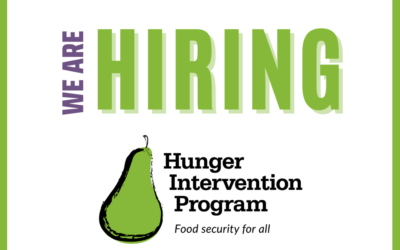Wouldn’t it be nice if we had a step by step recipe on how to end hunger? We know it’s not an unsolvable problem. We have enough food. We have people who need jobs. We have data on what policies work and what don’t. But things are messy. Even when we think we understand a problem, and have enough data on what works and what don’t, there is a vigorous debate on how exactly we solve it. However, there are steps that we can take, and that people all across the nation are taking, to address hunger. As the late historian, Howard Zinn, reminds us, “We don’t have to engage in grand, heroic actions to participate in the process of change. Small acts, when multiplied by millions of people, can transform the world.”1
There is no one right way of ending hunger. Different people and organizations have different approaches. Some provide meals or food resources, some work on reducing food wastage, some prefer to educate people on nutrition, and others organize communities and advocate for policy changes. Sometimes it may feel like there is a lot of redundancy. But we need all of them, and more.
At Hunger Intervention Program (HIP), we provide weekend meals, afternoon snacks, and summer meals to children. We serve hot lunch to seniors. But we must ask ourselves, does that end hunger? I think of James’ story. He fell into poverty, homelessness, and hunger all of a sudden, just because of an unforeseen accident, and because he had no savings to fall back on. I think of Rebecca who works two jobs, but still doesn’t earn enough to feed her two kids. We aren’t even talking about her spending quality time with her children, after her two jobs.
What these stories tell us is that hunger is not an isolated issue from homelessness, or lack of living-wage jobs, or economic inequality. That’s why the Food Research and Action Center identifies creating job, raising wages, increasing opportunity, and sharing prosperity as their top strategy in their Plan of Action to End Hunger in America report. Climate scientists are telling us that global climate change is going to drastically change our food production in the coming decades and we need to create sustainable solutions for avoiding hunger for our children and grandchildren. Providing meals does alleviate hunger, but clearly we need to, and can, do more.
When the problem is too huge, justifiably, we feel overwhelmed. But we can take one small step at a time. If you are still looking for three easy steps to end hunger, consider these:
(1) Remain hopeful. Change is slow, but it sure “bends towards justice”. The process of change is hardly ever a linear one constantly moving towards justice. In fact, things often get worse, before it starts getting better.
(2) Take part in the democratic process. Vote for candidates who support systemic solutions to hunger. Call or write to your legislators – both local and federal. Organize communities and advocate for policies that address the root causes of hunger.
(3) Support organizations that are working to end hunger. Volunteer your time. Donate funds.
Change will not happen overnight. But we cannot give up or lose hope. If history is any guide, it shows us that change happens even when the odds seem insurmountable. Empires collapse. Walls break down. Dictators fall. Big changes like ending hunger won’t happen in years, it’ll take generations. Our work is to continue to chip away at the unjust system. Let me end with another quote from Howard Zinn that continues to inspire me: “if we do act, in however small a way, we don’t have to wait for some grand utopian future. The future is an infinite succession of presents, and to live now as we think human beings should live, in defiance of all that is bad around us, is itself a marvelous victory.”1
1. Zinn, Howard. The Optimism of Uncertainty. September, 2004. The Nation. Retrieved from: http://www.thenation.com/article/optimism-uncertainty/




0 Comments